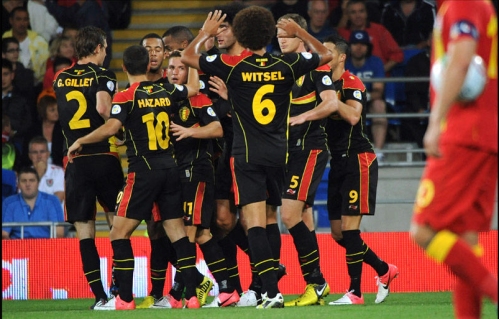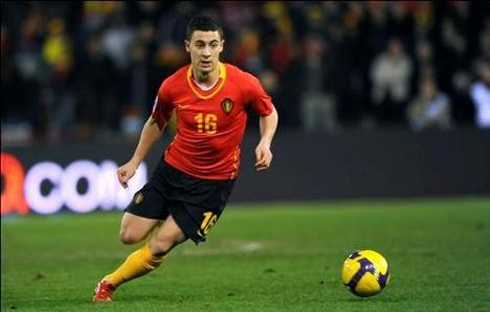Following the news that John Terry has been found guilty of racially abusing QPR defender Anton Ferdinand and that he will no longer pull on the famous white jersey of England, there will be many that see this as a triumph for the decent over the disgraceful. Despite his many controversial mistakes, his footballing ability has never been called into question. While Terry has been on a mission of self-destruction for as long as the mind remembers, there is the argument that we have pushed and harried England’s best defender and leader into early retirement, and our reasons are completely non-football related.

Mark Lawrenson said on Match of the Day 2, “It seems Terry is pre-empting the FA by retiring. He’s almost citing a witch-hunt with his statement. But away from that, he’s always been outstanding for England as a leader and a player on the pitch. They will miss him”.
Now, I’m not going to sit here and defend a man who has compiled a shameful repertoire, which rivals even the infamous Joey Barton, if a little less sociopathic. He is guilty of a multitude of misdemeanours, all of which could have been easily avoided with even the slightest hint of brain power. Problems were clear right from the start of his career; from kicking off repeatedly at night clubs to revealing his sensitive understanding of world affairs by mocking American tourists at Heathrow airport days after 9/11 – it was plain to see from an early age that Terry was, in many respects, a bad egg.
What followed was the Wayne Bridge affair in 2010, a tumultuous period that cost him the England captaincy as punishment. Who would have believed that Terry, having been reinstated, would lose it again less than a year later? The irrepressible cloud that has hung over Terry since the incident of apparent racism against Anton Ferdinand in 2011 has not since dissipated, and Terry has cited the FA’s stance on the matter as the key factor in his decision to retire.

Having been cleared of racially abusing Ferdinand in July, Terry found himself the subject if an FA investigation into the matter. Objectively, you can understand Terry’s evident frustration at this. He was found not guilty, but the FA still pressed charges against him. Their decision to do so, whether you agree with the punishment or not, has been vindicated with Terry found guilty of the FA enquiry. It is evident however that they no longer wanted him to play for England, and his decision to retire will have been met with relief from English football’s governing body, but will there be a cost for their obsession?
Terry is a colossal leader and an outstanding defender. He is, and has been for the best part of a decade, a footballing role model for young defenders the world over. Of this, there is no question. It is worth noting that Terry is no longer the powerhouse defender that he was, but he is still only 31 and in footballing terms a player of his quality will be hard to replace. Fabio Cannavaro led Italy to a World Cup triumph in 2006 at the age of 33 and in an ideal world Terry would play on helping nurture his future replacements.
His two worlds are separate; his ugly, off the field side, and his heroic performances on it. Unlike other bad boys of English football, he has been able to shut out the destructive, and concentrates on leading his team to victory. We all expect a trail of injured players and multi-coloured cards to follow when the likes of Lee Catermole, Marlon King and Ryan Shawcross take the field, but Terry is different, as much as we hate to admit it.

Terry has led Chelsea to three Premier League titles, four FA cups, two League cups and a Champions league since 2004, making him Chelsea’s most successful captain. He was named Uefa Club Defender of the Year in 2005, 2008 and 2009. He was PFA Player’s Player of the year in 2005, and was also in the FIFAPro World XI from 2005 to 2008. As England captain, he always displayed absolute professionalism on the pitch throughout his tenure.
The endorsements from England bosses are endless. Fabio Capello resigned on the eve of Euro 2012 after Terry was stripped of the captaincy for the second time; Roy Hodgson consistently backed Terry, and always picked him to start for England right up until his retirement. Asked whether the Chelsea skipper is a natural leader in 2001, Steve McLaren told the BBC: “Yes, of course he is. I think everyone accepts that, everyone can see it, everybody who knows John Terry behind the scenes knows that.” McLaren was almost right. Yes, everyone can see he is a leader, no doubt those who work with him know that he is (with a few notable exceptions), but the nation cannot and probably never will accept John Terry.
Written by Tom Gatehouse. See more of his work at: http://goodbadribery.blogspot.co.uk/ or follow him on twitter @tragatehouse
Edited by Charlie Cook @charlie_cook09
